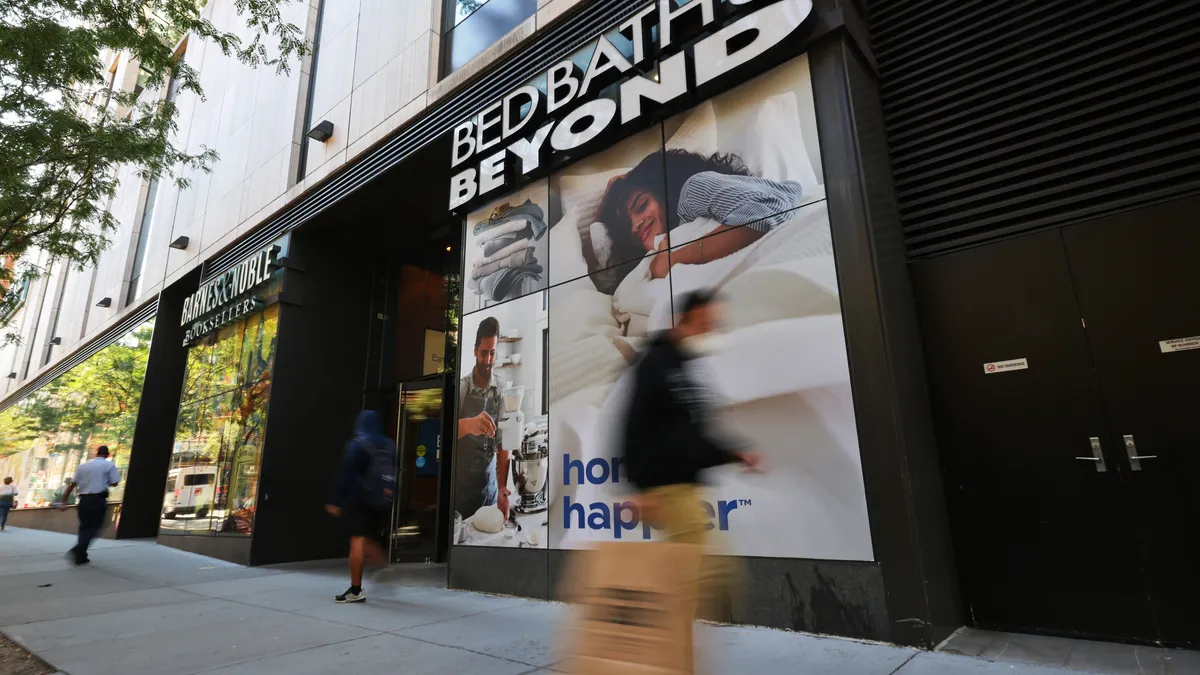Amazon founder-CEO Jeff Bezos got a lot of laughs last year when he said that the retailer would soon employ drones to deliver packages. Turns out, he was serious.
But last week, the idea didn't seem quite so simple or imminent. The head of the unmanned-aircraft office at the Federal Aviation Administration Thursday revealed that a commercial airliner in March had come close to colliding with a small unmanned aircraft. The disclosure renewed pressure on the FAA to quickly address commercial and hobbyist drones with clearer regulations.
The FAA regulates and currently severely restricts the commercial use of a drone, although some court cases have successfully challenged the agency’s authority.
Major changes in transportation modes tend to greatly affect retailers. For that reason, many retailers are keeping an eye on the evolution of drones in delivery. But will they have the same level of impact on retail businesses that, say, the transcontinental railroad did in the 19th century or the national highway system did later on?
Crowded skies
Last week's report is the first instance of an airplane having a near-miss with a drone, but pilots have previously reported seeing drones get a little too close in the air. In the March incident, the pilot of the plane came so close to the drone that he thought he had indeed collided with it. Although they didn't, Jim Williams, the FAA official who disclosed the incident at a conference on drones last week, said that "the risk for a small [drone] to be ingested into a passenger airline engine is very real.”
The drone involved was not the kind of aircraft that would be used by Amazon or any other shipper, but rather an unmanned model of the type flown remotely by hobbyists. Still, the alarming news reignited the debate about how wise it is to allow freer use of drones for commercial purposes.
Not just Amazon
Certainly drones seem like a new wave of transportation that could help revolutionize retail. The railroads, the development of a nationwide highway transportation system, and air freight have each in turn helped drive innovations in retail businesses that wouldn't have been possible without them. Several entities are seriously considering the use of drones.
While FedEx CEO Frederick Smith has called Amazon’s drone delivery “mythology,” the shipper has nevertheless been exploring the idea. UPS and DHL are also looking into flying drones, while Rolls Royce is exploring unmanned cargo vessels at sea.
And it’s not just shipping, either, that could help populate our skies with unmanned aircraft. Farmers are increasingly using drones to gather information on their crops, and many want to use them for crop dusting. Hollywood and news organizations want the ability to film using drones, and the National Association of Realtors is similarly pushing to use drones to capture photos of property. In fact, Bloomberg recently reported that several organizations are lobbying both for and against the use of drones.
That’s not surprising considering that drone use has potential in health care, energy, law enforcement, weather reporting, wildlife protection, search and rescue, and mapping, among others.
Google earlier this year bought Titan Aerospace, a two-year-old start-up that makes solar-powered drones. Google could theoretically employ drones to maximize its Google Earth project, deliver data, and, yes, deliver packages.
Even Washington’s baseball team, the Nationals, got in hot water with the FAA during spring training in Florida after they took publicity photos using a drone. Their defense? That their pop flies go higher than the drone ever did.
Privacy concerns
Safety is not the only issue when it comes to unleashing drones in the sky. Groups like the American Civil Liberties Union and some members of Congress are worried about drones’ potential for invading privacy and possibly violating U.S. citizens’ Fourth Amendment rights against unlawful search and seizure.
Sen. Dianne Feinstein (D-CA) for one became especially concerned after a drone flew by a window in her home and got very close to her face when she peeked out. Congressional lawmakers are concerned about both purposeful and accidental surveillance, and several states have passed laws limiting drone activity.
The sky may be the limit
The FAA has promised commercial drone rules by 2015, but a federal watchdog has said the agency is likely to miss that deadline. In the interim, impatient companies may continue to challenge the agency’s authority and begin (or continue) their use of drones.
Still, even as companies flout the FAA and use drones (or at least develop programs to use them), the future of drones in retail, for Amazon, or anyone, remains uncertain. Right now, it's all potential, but there is no infrastructure for drone delivery. As the skies become more crowded, safety and privacy issues will likely loom even larger in people’s minds.
When other modes of transportation helped revolutionize retail, retailers were poised to deliver. Today? Maybe not so much. As it stands, it’s unclear how much of a priority super-speedy delivery is for online shoppers. The problems retailers are grappling with and the innovations they need may require a bird's eye view, but it all may be happening a bit closer to Earth.
Would you like to see more retail news like this in your inbox on a daily basis? Subscribe to our Retail Dive email newsletter! You may also want to read Retail Dive's look at























